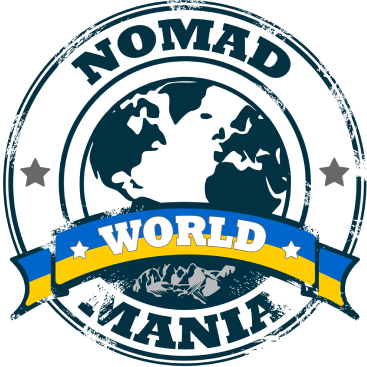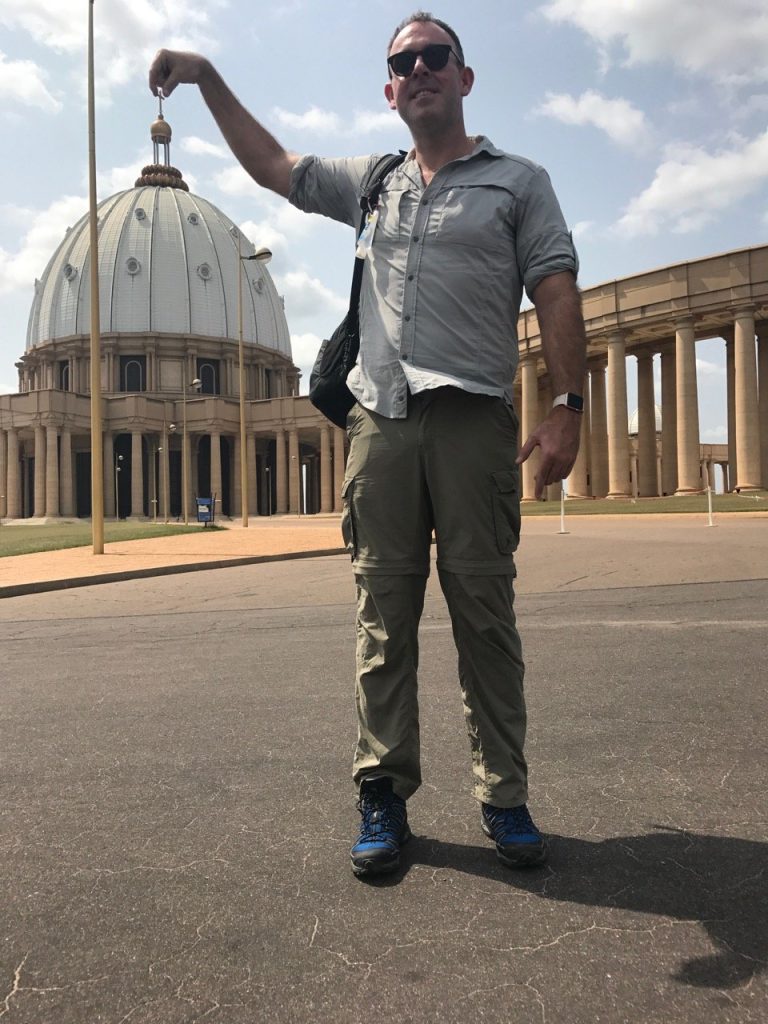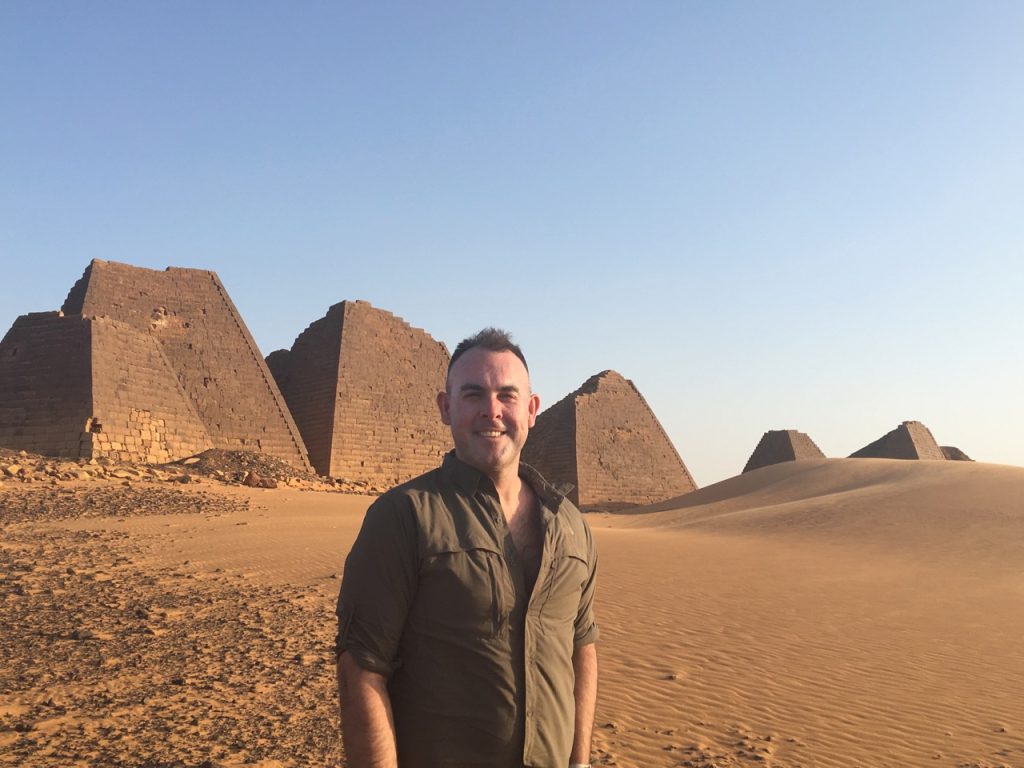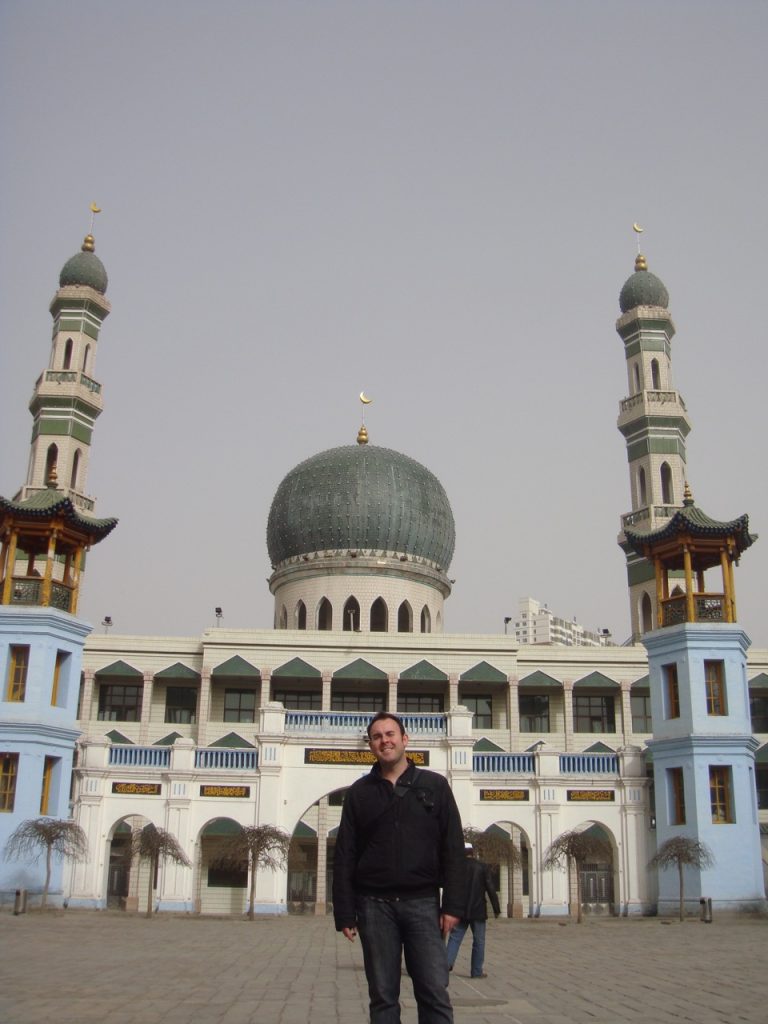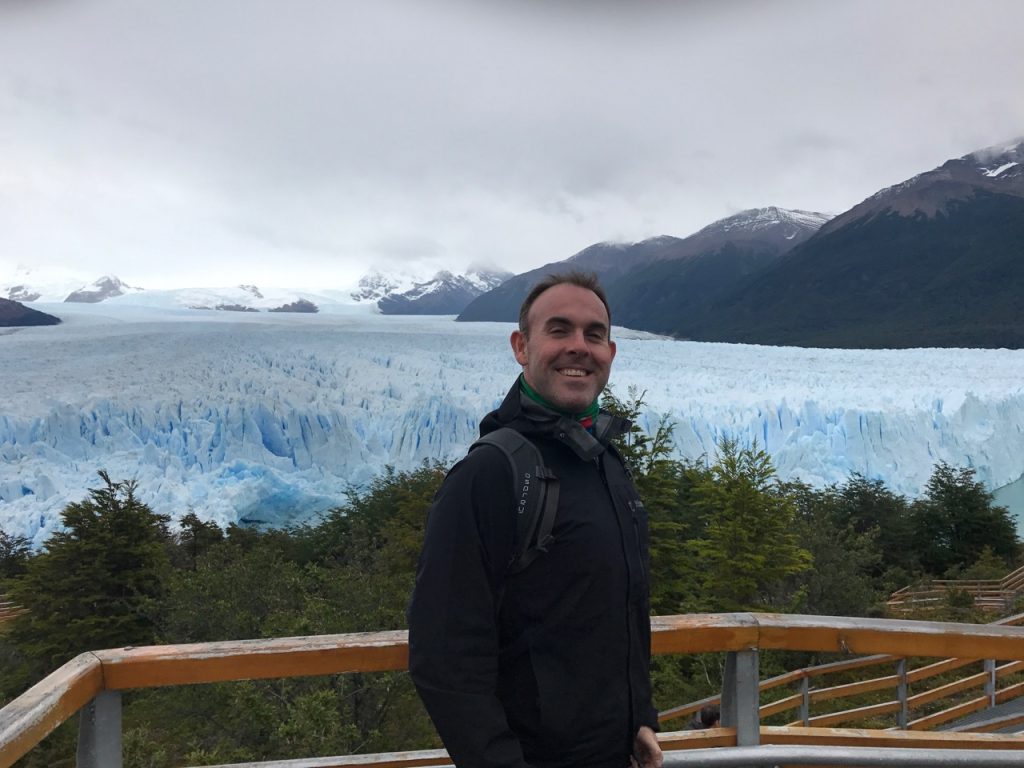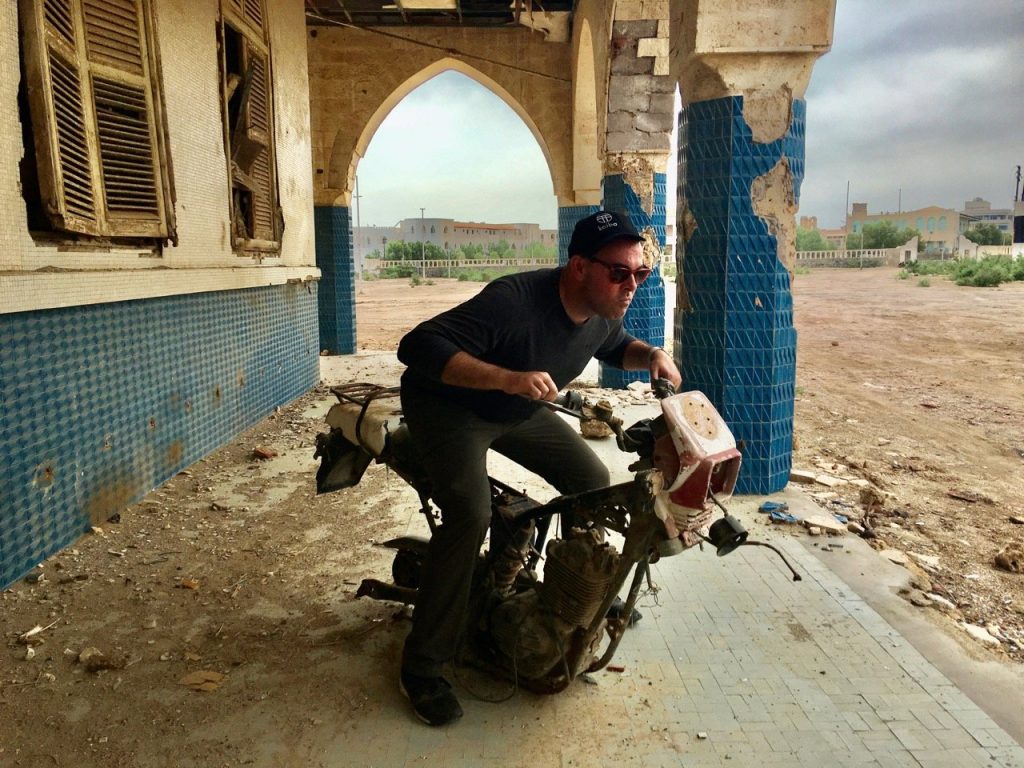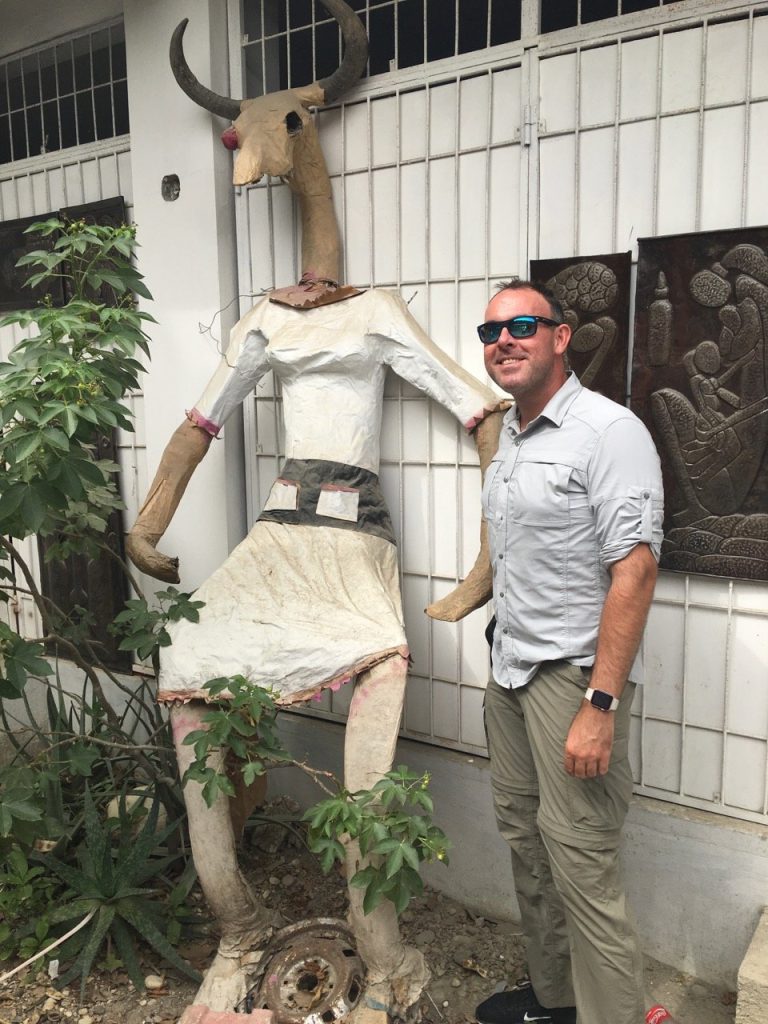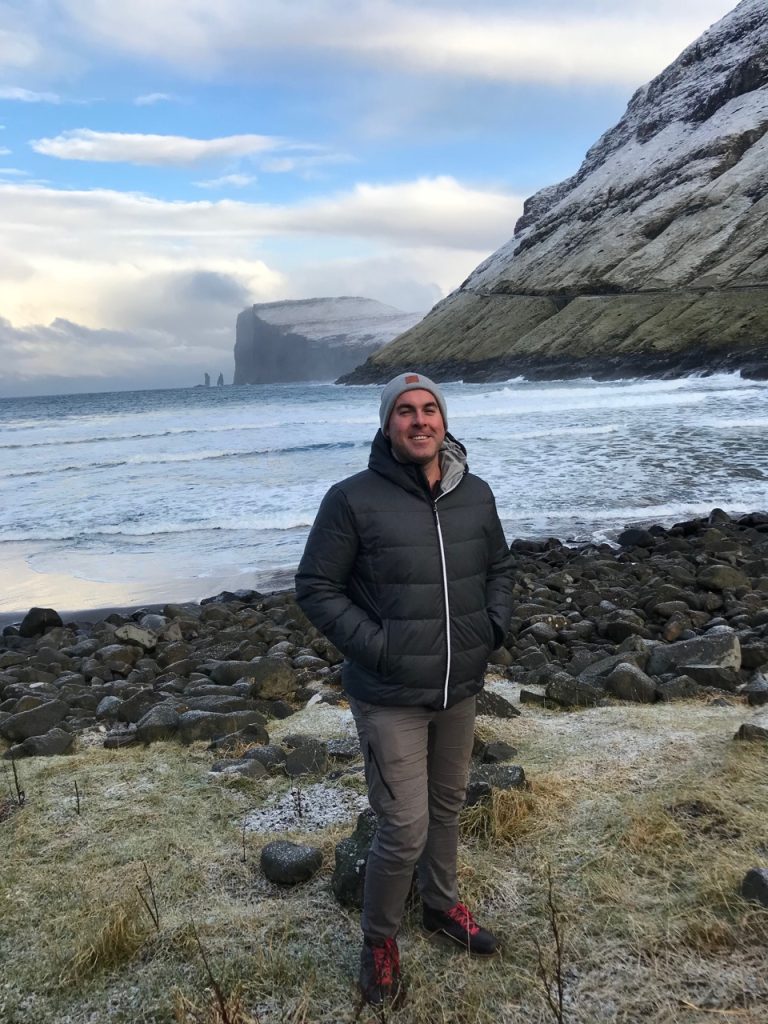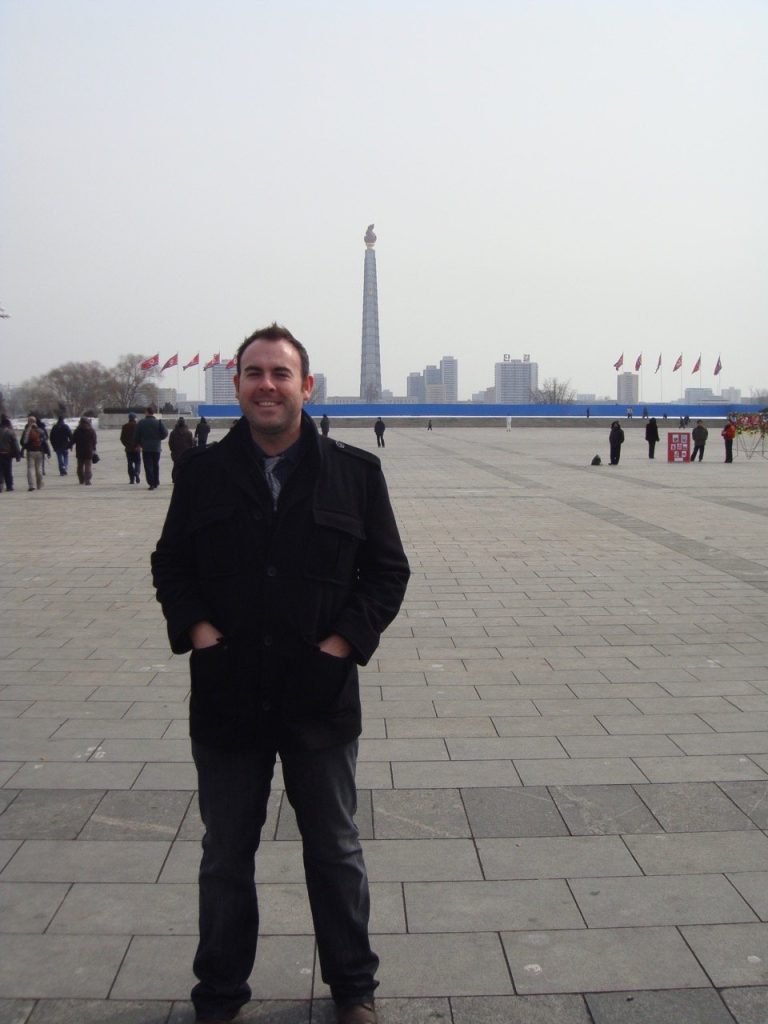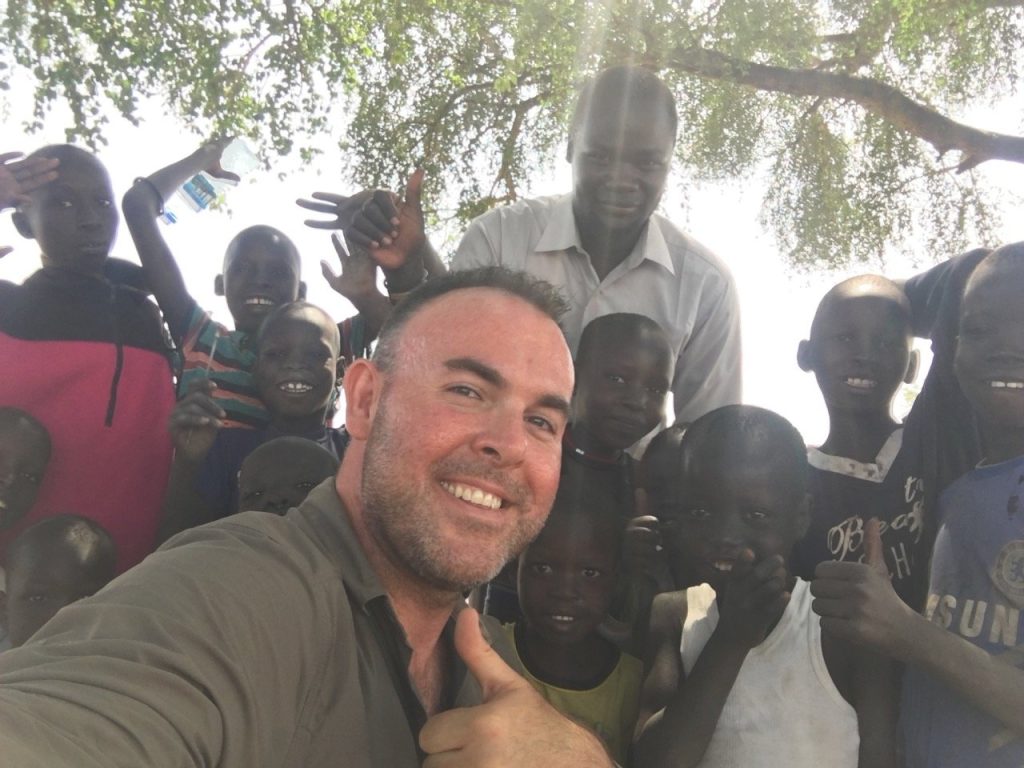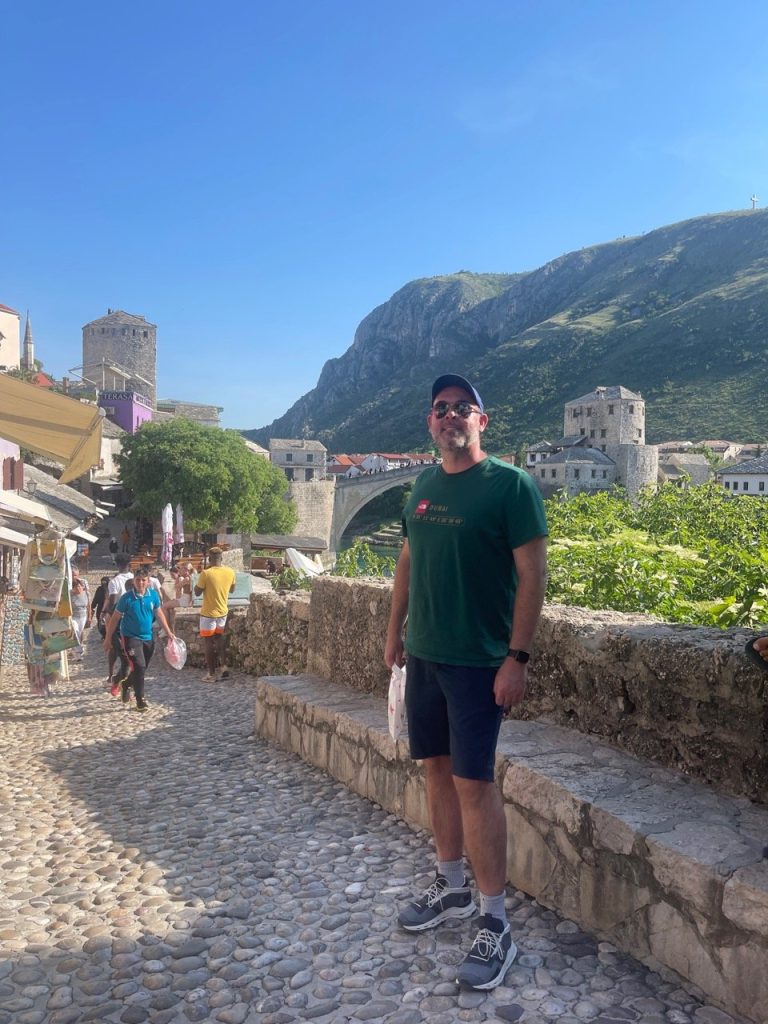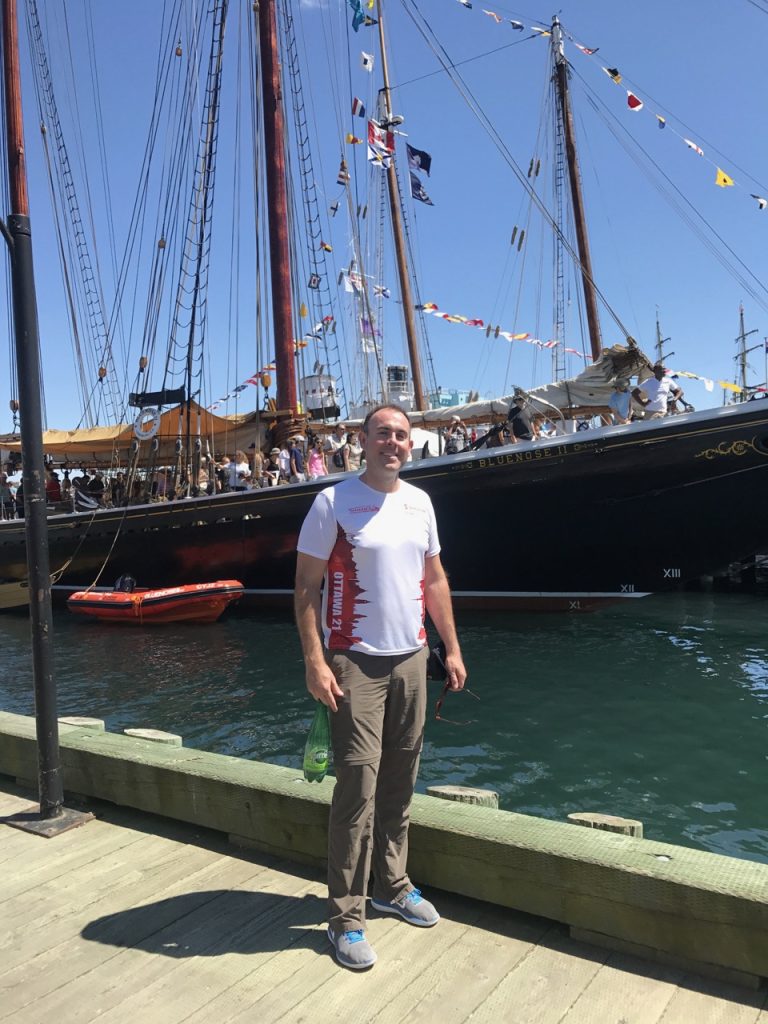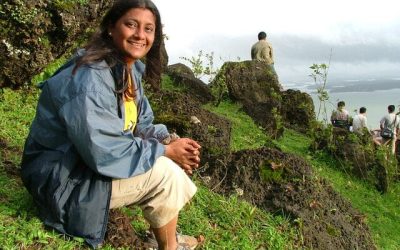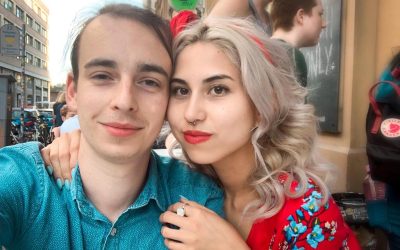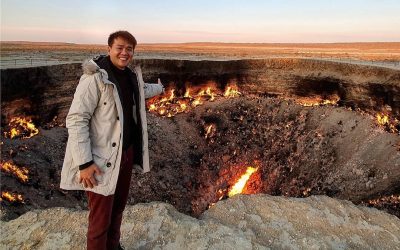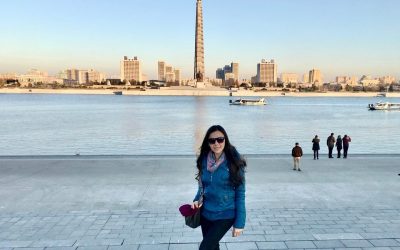Zach comes from Canada but now lives in Dubai which, as he says, serves his travel bug well. He speaks Mandarin among other languages and says that this is crucial in understanding Chinese culture. A PhD in Biomedical Engineering and a profound interest in philosophy certainly give him a unique perspective and view of the world. Read along to see what untold adventures this traveller has gone through.
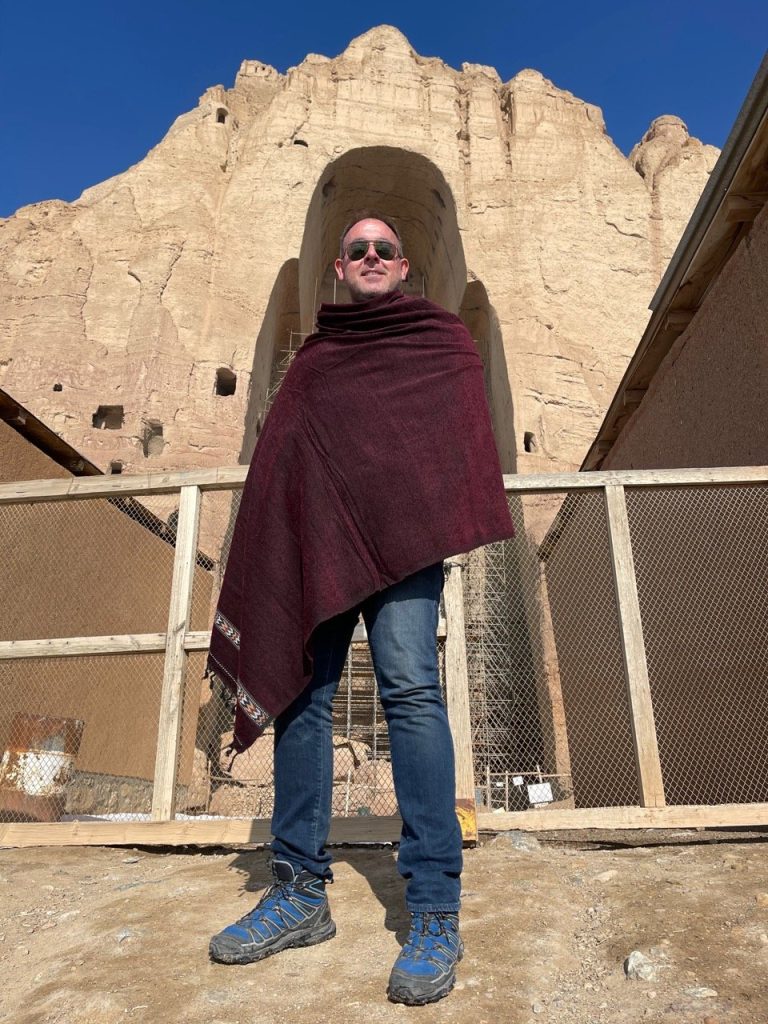
Zach, introduce yourself please: where do you come from, a few words about your childhood, family and hobbies, what do you do for living, etc.?
Firstly, thank you for giving me the opportunity to engage the inspiring community of NomadMania. I’ve found it to be an incredible tool and I will support it however possible.
“Where do I come from?” – this has been a difficult question for quite some time. I was born in New Glasgow, Nova Scotia, about an hour and a half north of Halifax. New Glasgow was the home of my father, his father, and beyond. Both of my parents’ families have a long lineage in maritime Canada, and we are large of British Isles heritage with some Iberian and Native Canadian thrown in. With Irish-sounding accents.
After living in Montreal for a few years, my father received a great job in North Carolina in the Southeastern USA, where I would then spend the next several years of my life, and eventually elsewhere in the South where we became American citizens in 2004. Thus, I now enjoy both passports and the conveniences that offer. I’m also pleased to announce my new citizenship to the young Republic of Slowjamastan.
We didn’t anticipate staying in the US forever, but my parents flourished, made lifetime friends, and assimilated easily. They would eventually live out both of their lives in the South. My father worked for a Finland-based company, so we always seemed to have visitors from Finland, Sweden, and Denmark.
Furthermore, where we lived in North Carolina there had been a sudden influx of talent from all over the world, and we found ourselves in a neighbourhood full of people from Iran to England to Zimbabwe to Lebanon. Between learning how to prepare Scandinavian food for our guests, and attempting the recipes of our many wonderful neighbours, I grew up with a taste for international cuisine and learning languages.
My father began suffering chronic rare disease in the late 80s, so we never really travelled beyond the USA or to visit family in Canada. My father and mother frequently to parts of Europe and Brazil for work and pleasure, but we didn’t have the resources to include me. Thus my first and only international trip had been to the Bahamas as a young boy.
I am a PhD Biomedical Engineer and became interested in impacting healthcare after spending so much time in hospitals with my father, and a general interest in biology. When beginning my PhD, my dad wanted me to explore the world as he could not, bought me a plane ticket to London and told me to go investigate our heritage.
After a few weeks of training and busing around hostels in England and Scotland, I was proverbially ‘stung’ by the travel bug at age 22. Now 21 years later, it still itches!
I have lived in 5 US states, spent 6 years in Shanghai, and after some recent time back in the USA I made the move to Dubai in 2021 for new entrepreneurial endeavours in biotechnology and healthcare technology. I love it here not only for the convenience/ease of travel and receiving visitors, but also for the cosmopolitan community, and great cuisine.
During the recent World Expo, we were able to host so many traveller meetups – I’m lucky to have met so many inspiring travellers here, both residents and visitors.
Tell us about not so popular, but valuable places to visit in your motherland.
I’d be amiss not to recommend my under-visited home province of Nova Scotia. From the famous Cabot Trail near my mother’s birthplace in the Cape Breton Highlands to Peggys Cove, the Halifax Waterfront, to the Bay of Fundy, you’re never more than 90 minutes from the shore. You can explore emerging wineries and distilleries, great log cabin cottages along the coast, and sometimes even see a whale pop up in nearby waters as you watch from your patio.
Whale watching is superb in Nova Scotia – the whales are as friendly as our people. Those who remember 9/11 might recall that several flights headed for the USA were diverted to Halifax Airport. Many people stayed for weeks and weeks in our homes until a solution to transport them to their desired destination was possible.
You really can’t go wrong with Newfoundland either, just a quick flight north of us. Maritime provinces are famed for enormous, sweet lobsters, but it’s a seafood lover’s dream across the board. Many Americans know about the Nova Scotia & Maritime secret, but the region is all too often missed in favour of the Montreal-Toronto-Niagara-Banff-Vancouver circuit.
Those are wonderful places, but consider spending some intimate time in my region and you’ll be recommending it to your friends.
Do you prefer to travel alone or with someone – and why? What are the main traits of character your travel companion should have?
I have largely travelled alone over the years. At a young age, I was roped into some group tours that offered convenience, but focused a lot on younger travellers and thus partying was often too large a part of the itinerary. Naturally, some countries require some or all nationalities to visit in tour groups, but at times I also find some of the new innovative companies burgeoning out of the UK are giving more affordable access to deeper parts of less-visited destinations that can make it a no-brainer.
NomadMania and Every Passport Stamp (EPS) also make it easier than ever to travel solo and find drivers/guides that are vetted and fair professionals.
During a mandated group tour in Turkmenistan in 2013, I made two great friends that I have travelled with extensively around several continents. One has hit 193 UN and has also been interviewed here, and the other frequently join me around the world to cut costs and watch out for each other when going deeper into Africa and Asia.
Ultimately, travelling solo for me seems easy as an only child, but as a gregarious person, it pushes me to meet fellow travellers and locals alike. Sometimes it’s a habit to cling to a travel companion or romantic partner, and you miss out on experiences if you aren’t cognizant of this security blanket.
Could you share some travel stories with us, the ones that stay deep in your head and heart?
This question must be a challenge for all Nomad Maniacs! Whether watching a Jewish man roll around in the dirt at Auschwitz in full tears, walking Shankill Road in Belfast, doing clinical research in enormous public hospitals in India, or hearing stories of adults once orphaned by the Rwandan genocide, we all have striking moments that won’t leave us.
To me, travel is a release of tension, just like a great laugh after the build-up from a skilled comedian. I’ve been most impacted by trips to less visited destinations where the media has often gotten it all wrong about the local people. As an American traveller, I also have the opportunity to represent our own complicated place, one which I do believe is populated mostly by uncommonly kind people. I try to embody a patient, flexible demeanour, answer questions, and smile.
My story will be about my trips to North Korea.
In 2006 I made my first visit to the DMZ/Panmunjom between South and North Korea. An UN-operated tour, I swore that I would eventually make my way into the North. In early 2008 this opportunity would arise. I had a business trip scheduled to Seoul and had learned that a day trip by road across the Reunification Highway would be briefly available.
Hyundai Asan had opened manufacturing factories on the DPRK side of the border in an effort to ease tensions and provide work for North Koreans. As part of this deal, Hyundai Asan would be able to offer daily bus trips from Seoul to Kaesong to tour important natural and historical sites. Per the agreement, this trip was required to include any nationality (including Americans), as well as journalists. After some deep digging, I found a contact in Seoul to secure a seat on a trip.
I arrived early at a pickup point in Seoul. There would be 97 South Koreans, 2 terrified Japanese, and myself using my US passport. After a quick drive to the border, I received my land exit stamp and boarded a bus to cross the DMZ. Signs along the road counted down the distance every few hundred metres, eventually culminating with a sign in English and Korean that said “Good Luck!”.
We visited a mountain, some museums, and a gift shop, and had a tasty Kaesong lunch before our eventual departure. I will forever remember sitting in a quiet, large dining hall enjoying DPRK versions of Korean classics, all while my South Korean compatriots quietly murmured about the subtle differences in taste from their food across the border.
In the end, I would provide cartons of quality American cigarettes to the handlers and bus driver, in a best attempt to extend a hand of friendship. We drove back to South Korea, handled border formalities, and suddenly I’m in a BBQ joint back in Seoul having dinner with colleagues.
However, I wasn’t satisfied with this small glimpse into the hermit kingdom. A year later, after moving to Shanghai, I learned that Americans were now being allowed on tours into Pyongyang and beyond. I contacted Simon at Koryo Tours and made arrangements for the first trip that would integrate Americans and other nationalities.
We would fly from Beijing to Pyongyang on Air Koryo, and I would be among the first Americans to ever cross from the DPRK into China by rail. I recruited an American friend in Shanghai, received the go-ahead, and off we went. On arrival, we were told we Americans wouldn’t be able to take the train, and that flights would be booked for our return. Oh well, let’s dig in.
The visit coincided with Chinese New Year in the chilly winter of February 2010 and was themed toward the celebration of the birthday of the then-living Kim Jong Il. After a week of festivities, beer-guzzling nights at Yanggakdo Hotel, and visits to the common route of destinations around the country, we would finally have a send-off evening of bowling, dinner at the revolving restaurant, and a closing party consisting of indulging in drinks as we recalled the events of our past week.
Being with a group of over a dozen nationalities who all had an interest in visiting a place like the DPRK, would be a great sendoff.
Just before the party, and as we concluded our final sites around Pyongyang, a snow blizzard ensued. Over the course of my time in DPRK, I was treated slightly better than my natively-born American friend as my passport indicated that I was Canadian by birth. Thus, I received a slightly warmer welcome than my friend.
While on the road during those days, I received so many curious questions from my fixers about why we had moved to the US, what it had been like soft questions on politics, but all discussions were rife with curiosity. As we arrived at the final monument of our trip, the Juche Tower, we disembarked our van into a quiet, snowy landscape for photos before our celebration.
The signature moment of that trip to North Korea would occur then. One of our fixers, a petite and well-spoken young lady with a taste for Johnny Walker, asked me how we endure snow storms in Canada and the US. “Besides skiing or making a snowman, how can you have fun outside?” To her I replied, “Have you ever done a snow angel? It’s a favourite of children and adults alike when the snow falls”.
She had never heard of such a thing, so down I insisted we plunge, right in front of Juche Tower, for her first lesson in swiping your arms and legs to make a snow angel. We made our moment of natural art, culminating with her briefly grasping my hand and telling me what a joy it had been to show me her country. Not a moment of romance, but a moment of shared humanity.
I would love to return and make snow angels with more of my Korean brothers and sisters, North and South.
What is it about the travel that gets you excited the most and what keeps you going even when it is tough?
Fresh exploration on the horizon, especially for busy professionals, always helps to keep the motivation to deal with your day-to-day knowing that there are new experiences ahead. I tend to book most of my trips in days to weeks from my departure, saving some more complicated expeditions that require more paperwork and planning.
The thrill of connecting in advance with great locals on the ground, securing a notoriously challenging visa, and entering the planning phase reminds me of the childhood delight of a popsicle on a hot summer day.
I can sleep in the dirt in Sudan or in Raffles in Singapore, I just tend to know what to expect and prepare myself for it mentally. I have been detained by police in Kandahar, held by Triads in Hong Kong, and attacked by protestors in Odesa. In each case, I remember to do my best to be patient, smile, treat people as my obvious equals, and laugh through tough situations.
Each and every heart beats like yours, is no more or less valuable, and you must also remember that you belong in any room you find yourself in. Give yourself to the people hosting you and they will most often give their heart right back to you.
There is a stereotype that travel is only for wealthy people. For many, dreams about travel remain just a dream. What would you recommend for people with a low budget? For sure there are tricks you’ve learnt that can help people see the world and still not spend a fortune?
As a young or older person, joining hostelling tours can be an easy, cost-effective way to see many places if you don’t mind a few farts and snoring by night. I am tall and bulky, so at times, I spend more on transportation to keep myself in good physical condition for when I know I’ll be cramped unavoidably.
Set a budget and prioritize your needs across transport, accommodation, food & beverage, shopping, and unforeseen events. Getting decent travel insurance is worth it, and doesn’t have to cost an arm and a leg.
I have spent much of my early travels visiting more cost-effective, less trekked destinations where I could push my money further. Having never been married or had children, I figured that many destinations often deemed more ‘touristy’ will be more cost-effective if you travel with your own family or friends that aren’t interested in visiting tribes in southern Ethiopia.
I would also suggest maximizing your long-haul air travel to regions. If you plan to visit Ethiopia, why not cluster in travel to Djibouti and Somaliland? Of course, this is obvious to many of us, but to those maximizing budgets and starting to dig deeper into the world I suggest clustering regions to not only save cash but to enjoy the subtle and not so subtle differences in a geographical region to gather more perspective.
That could be the Horn of Africa as mentioned, or South America, the Balkans, or even the budget-friendly nations of Southeast Asia.
Give us a few of your favourites in terms of countries and experiences.
I like to answer this question relative to regions and continents. With only 130 UN countries down, this is likely to evolve. I’ll say Japan, Argentina, Romania, Ethiopia, Lebanon, and Barbados.
Asia – Japan. You simply can’t go wrong with Japan for a safe, evocative, and delicious adventure. Deep history, kind people, and hidden eccentric experiences, and I’ll never stop going back. Recommend getting a flashcard app and learning their phonetic alphabets which will go a long way in reading menus and street signs. Eat – Okonomiyaki.
South America – Argentina. There’s something for everyone here, and I go back again and again. Food is plentiful and delicious, people are proud & passionate, and the landscape changes by the minute. Eat – Steaks.
Europe – Romania. The most underrated destination in Europe. Gorgeous nature and vibrant cities wrap around charming people. Drink – beet juice.
Africa – Ethiopia. This is where I fell in love with Africa. There are some security concerns these days, but I think it’s generally a safe and rewarding destination to investigate the origins of humanity, stunning landscapes, and many different tribal cultures. Round it out with great coffee and healthy cuisine and you’ll have fuel for the road. Eat – Shiro Wat.
Middle East – Lebanon. Once you visit this tiny, but gorgeous nation you’ll understand why everyone fights over it. Don’t be afraid, you can be stunned by Roman ruins by morning, belly filled with scrumptious Levantine Arabic cuisine by day, and dance the night away with the beautiful people who are glad you came. Eat & Drink – Everything.
Caribbean – Barbados. It’s pricy versus some other islands, but Bajans are clever, funny, and welcoming people. It takes a lot more for me than nice beaches to enjoy an island, and Barbados delivers. My great-grandfather fought alongside Bajans during WWI and the national history museum will show you the deep ties between Canada and Barbados. Enjoy your resorts, but go and meet some locals. They are superb. Eat – Souse & Black Cake.
As for experiences, I’ll have to start with climbing Mt Kilimanjaro. It was a strenuous, yet fulfilling journey where I made new friends for a lifetime. Some other snapshots – being one of the first to walk across the then newly reopened border between Uzbekistan and Tajikistan.
Sleeping on the overnight Red Arrow train from Moscow to St. Petersburg. Mid-day coffee ceremony in the forested hills of Eritrea. Dancing in the one light, mildew-scented basement of the now-shuttered Tresor techno club in East Berlin. Relocating joints and sanitizing wounds in Eastern Equatoria, South Sudan.
The descent by seaplane into Aitutaki, Cook Islands. Driving across rural Wyoming as the sun rises. Joining a street-side salsa-laden nativity party in Medellin on Christmas Eve. Chugging kava in Fiji on a rescue boat after getting lost swimming with manta rays.
Taking the most violent ferry experience across gigantic waves in the Faroe Islands from Torshavn to Sudroy, then being thrown around the cabin before falling down a flight of stairs. Most of these experiences were chased with an ice-cold, draft beer.
How do you plan the upcoming route, what aspects do you take into consideration? How often do you have to deviate from a well thought-out route and what can affect this? Do you have a challenge route, especially difficult or dangerous, that you must complete for sure?
As an enormous mammal and a cash-burning entrepreneur, I try to find ways to fly comfortably yet at a high value. Living in an air hub like Dubai this is often easier, but I find other options as an armchair expert in points and flier miles programs like many others here in NomadMania. With that said, on any trip, I like to try to fly with airlines I’ve never travelled with, and enjoy the unique boat, rail, or road journeys. On day trips from urban sprawls, I like to plan around time spent going/returning vs. time spent visiting a particular city or site. If the math doesn’t compute, I don’t scoot.
Deviating from predictable routes is common for me. Time permitting, I’ll always choose a boat over wheels and wings. I come from a seafaring culture, can sail decently, and know how to fish if I need to do so. Among all transport modalities, I’m happy to save a night of accommodation to combine the journey with enough rest to arrive ready to engage my destination. Sleeping on a small boat is wonderful, and my favourite experiences of such were in Vietnam.
My easy challenge route would be driving an electric car from Vancouver to Halifax, or pushing myself by walking with Catholic pilgrims in Poland from Warsaw to Krakow via Częstochowa to see the Black Madonna. A full barge route along the Congo River is on the list.
Finally, our signature question – if you could invite any 4 people to dinner, from any period in history, who would your guests be, and why?
Chairman Mao – I lived in China for many years. I speak Mandarin now, and to learn the Chinese language is to understand thousands of years of culture, up to and including the last century. I’d like to soberly ask him to explain just what his real plan was if there was one. And eat red braised pork belly (红烧肉) together before he has me killed for running my big mouth.
Immanuel Kant – as a philosophy minor in college I became infatuated with his espousing on what defines morality. I’d love his analysis of my intentions and execution of my (hopefully) many days left on Earth. In particular, the inherent hypocrisy of travel where even with the best intentions and good behaviour, leaves question marks about the benefits versus the harm we bring when visiting certain parts of the world.
Jacques Cousteau – Marine biology would have been my next choice outside of biotechnology and solving human health problems. Growing up in the Maritimes of Canada and loving the creatures of the sea, he pioneered and influenced my interest in the deep unknown. I’d love to know how he’d feel about the current state of the waters of the world, seafood consumption, and how to turn the ship around on plastic pollution.
Richard Pryor – a comedian who needs little introduction, Richard Pryor and peers like George Carlin pioneered the mindset of the ‘you don’t get to be offended if I tell it like it is’ mentality that has made standup comedy a voice in many societies. I perform standup as a hobby, and Mr Pryor taught me how to push boundaries without being aggravating. Rest In Peace.
If all four joined at once, it’d probably end with Richard Pryor making shark attack jokes about Mao, Cousteau recommending the right shark for the job, followed by a lecture by Kant on whether the ends would actually justify the means. I would just sip my beer and keep my mouth shut.
